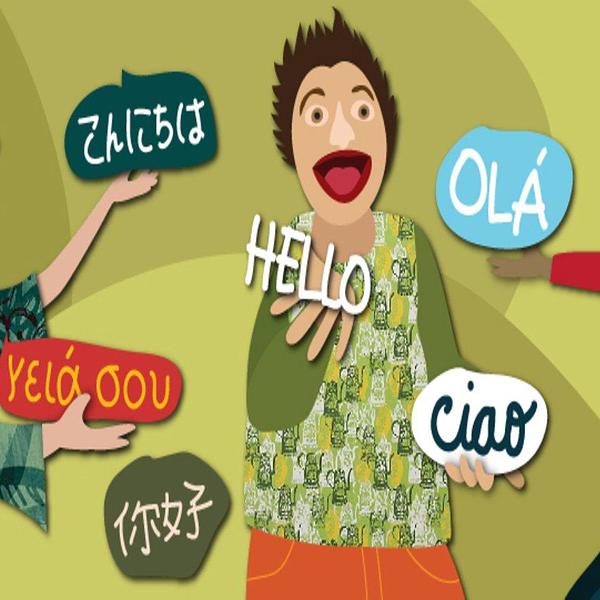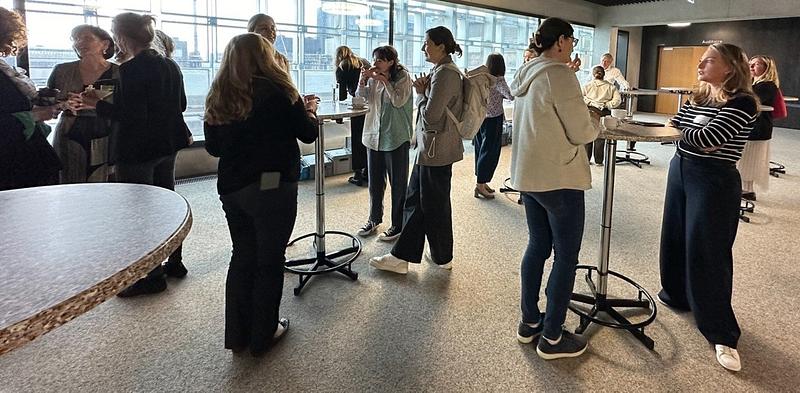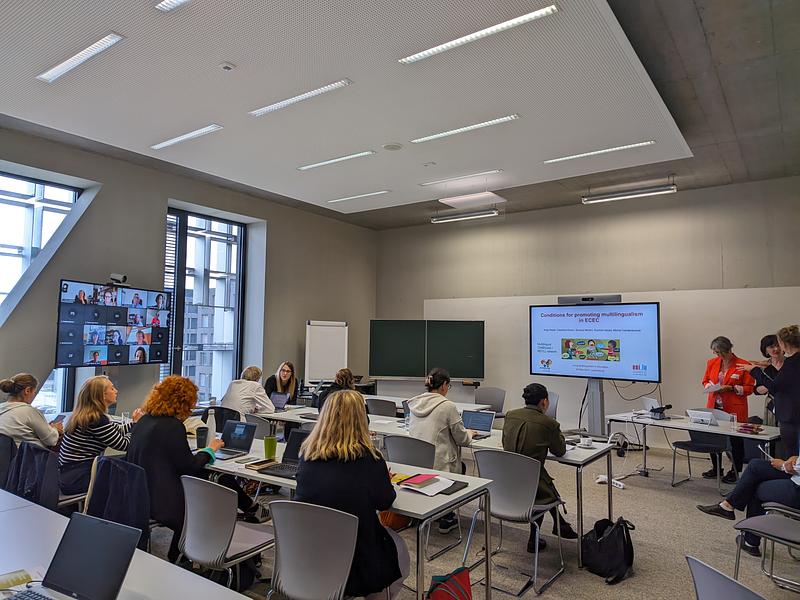
2024-06-05
On May 24th, the University of Luxembourg hosted the symposium "Living Multilingualism in Education", a hybrid event that was jointly organised by BilingualismMatters@Luxembourg and the Multilingual Childhood SIG. Nineteen senior and emerging researchers shared their expertise throughout the day.
Text & Pictures: Isabel Jiménez Fernández
The morning started with a presentation titled "Different perspectives on multilingual practices in ECEC in Luxembourg," delivered by Simone Mortini, Claudine Kirsch, and Michel Vandenbroeck. This was followed by Marjan Asgari and Michael Schlauch who talked about the impact of early literacy activities and collaborative digital storytelling to promote multilingual literacy and interactions in Italian kindergartens and primary schools. Nanfei Wang then presented on the role of the homescape in nurturing children's Chinese literacy in transnational families in France.
After a short break, Anja Pesch, Claudine Kirsch, Simone Mortini, Gunhild Alstad, and Michel Vandenbroeck presented several conditions that influence multilingual development: the semiotic landscape; translanguaging pedagogies; language-based agency, as well as the crucial role of teacher education and professional development in enhancing multilingualism in early educational settings.
After lunch, the participants engaged in parallel sessions. The first one explored language and literacy development in multilingual environments, including discussions on digital media use (Maria Obojska and Potheini Vaiouli), children’s literacy meaning-making (Valérie Kemp), and challenges and opportunities of home schooling (Yana Nebolsina). The second group (Nathalie Topaj, Aybike Savaç, Andreia Costa and Maïte Franco) presented on the provision of language instruction and support for migrant communities, the empowerment of minority language speakers through translanguaging, and the school performance of autistic children.
The final block also regrouped 3 presentations. Anouk Ticheloven addressed the relationship between well-being and proficiency; Sofia Stratilaki-Klein presented on language contact and Patrizia Civetta outlined the project Salto.
The participants praised the coherence of the topics and the good organisation. Some participants appreciated the opportunity to join the conference online, allowing them to be part alongside those attending in person. Other participants commented on the importance of the various topics. One researcher put it like this:
"I noticed an increased interest in two important subjects in the field of multilingualism and multilingual education. First of all, the education of multilingual open-minded specialists who are knowledgeable of different approaches and pedagogies, is fundamental for future generations. The other aspect is the indisputable importance of child agency. In other words, there are two big questions that might be explored in further research: what does it mean to be a child nowadays and what does it mean to be a teacher in the 21st century education system?”

